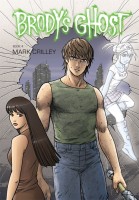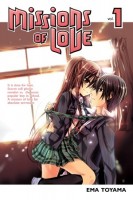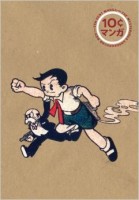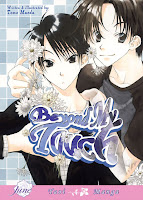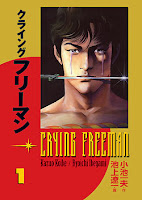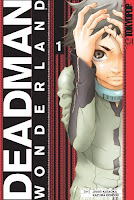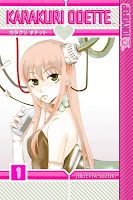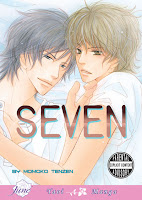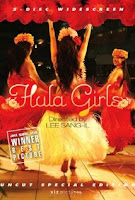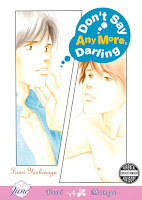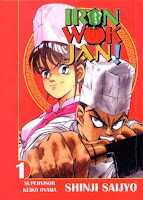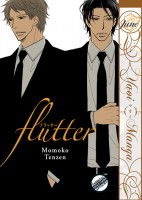 And the winner of the Juné Manga Giveaway is…Muteee!
And the winner of the Juné Manga Giveaway is…Muteee!
As the winner, Muteee will be receiving a copy of Flutter by Momoko Tenzen as published by Juné, one of Digital Manga’s boys’ love and yaoi imprints. Because it was June and the wordplay amused me, I decided to hold a Juné giveaway, asking those who were participating to tell me a little about their favorite Juné manga (if they had one). After ten years of publishing and over four hundred volumes of manga and novels, there are quite a few Juné titles to choose from. Because I enjoy making lists, I’ve gathered everyone’s responses (and added a few additional favorites of my own) below. Check out the giveaway comments if you want all the details, though!
Some favorite Juné manga:
Café Latte Rhapsody by Toko Kawai
Caramel by Puku Okuyama
Cut by Toko Kawai
Deadlock written by Saki Aida, illustrated by Yuu Takashina
Dear Myself by Eiki Eiki
Don’t Say Anymore, Darling by Fumi Yoshinaga
Hero Heel by Makoto Tateno
Gorgeous Carat Galaxy by You Higuri
I Give to You by Maki Ebishi
In the Walnut by Toko Kawai
Invisible Boy by Hotaru Odagiri
Kiss Blue by Keiko Kinoshita
Little Butterfly by Hinako Takanaga
Loveholic by Toko Kawai
Ludwig II by You Higuri
Maiden Rose by Fusanosuke Inariya
Men of Tattoos by Yuiji Aniya
The Moon and the Sandals by Fumi Yoshinaga
Mr. Mini Mart by Junko
Necratoholic by Maguro Wasabi
No Touching at All by Kou Yoneda
Only Serious about You by Kai Asou
Only the Ring Finger Knows written by Satoru Kannagi and illustrated by Hotaru Odagiri
Our Everlasting by Toko Kawai
Rin! written by Satoru Kannagi and illustrated by Yukine Honami
Same Cell Organism by Sumomo Yumeka
Seven Days written by Venio Tachibana and illustrated by Rihito Takarai
Solfege by Fumi Yoshinaga
Thirsty for Love written by Satosumi Takaguchi and illustrated by Yukine Honami
Time Lag written by Shinobu Gotoh, illustrated by Hotaru Odagiri
The Tyrant Falls in Love by Hinako Takanaga
Yellow by Makoto Tateno
Thank you to everyone who shared their favorites with me. There are a few manga on the above list that I actually haven’t yet read that I’ll need to track down now. Hope to see you all again for the next giveaway!

